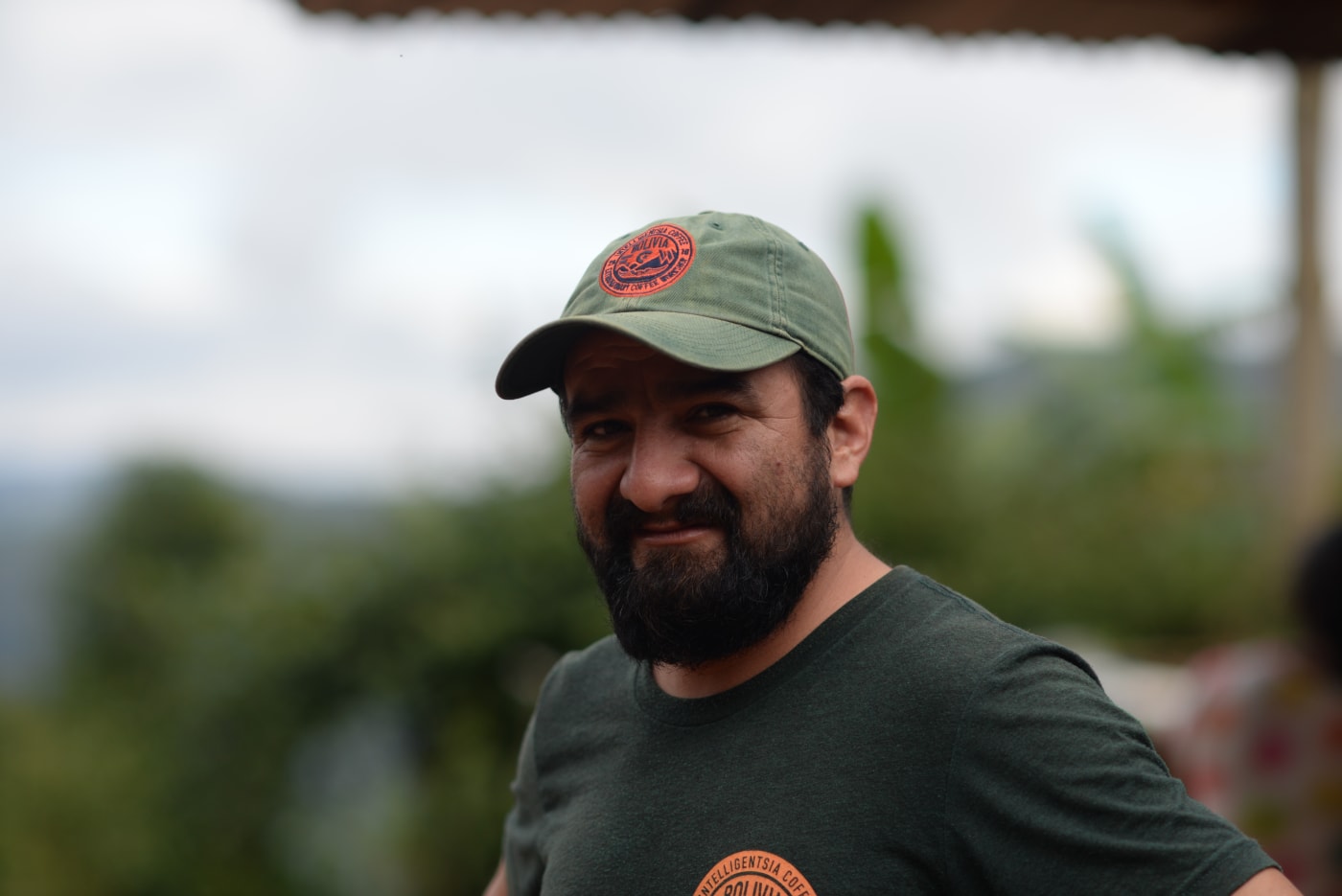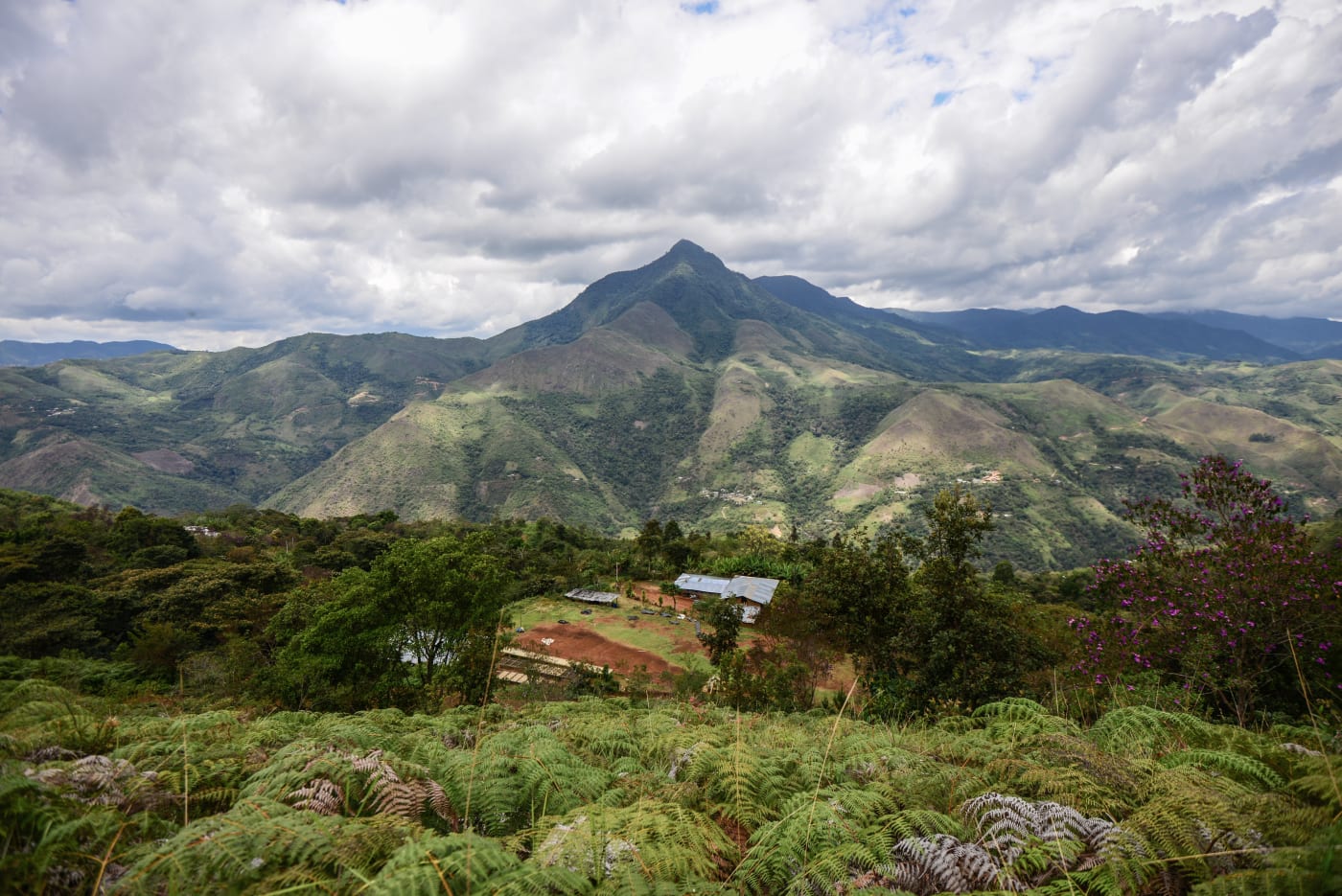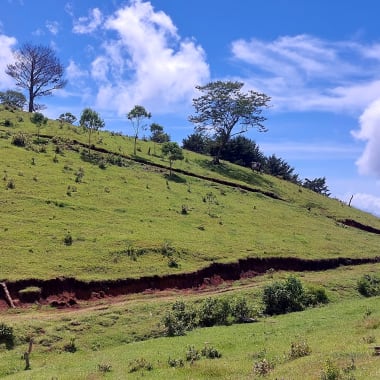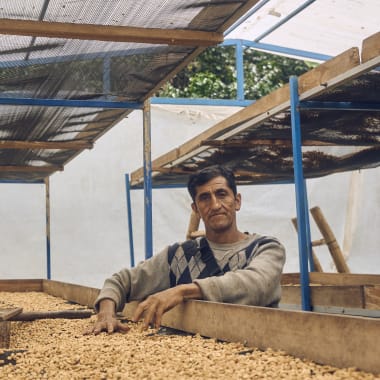-
Producer
-
Jose Praxedes Alarcon Coronel
-
Country
- Peru
-
Region
-
El Triunfo
-
Altitude
-
1769m above sea level
-
Variety
-
Process
-
Importer
-
Condesa Co.Lab
-
Body
-
-
Acidity
-
-
Tasting notes
-
Earl grey, apricot and white nectarine
-
Roast style
Peru
La Palestina
Jose has owned his farm La Palestina since 1990 but this just his second harvest of the prized Gesha varietal. We taste Earl Grey, apricot, and white nectarine.
VERY SPECIAL
This is the second time this lot makes it to VS and, again, it’s a sensational representation of two variables colliding to create something beautiful. First is the varietal: Gesha. What is there to say that you don’t know already? It’s possibly the most reputable, known for its clean and elevated flavour profile. Second is the process: washed. Unlike the natural or other experimental approaches, a well-executed washed process respects the intrinsic fruit properties and elevates its flavour potential without adding any funky, crazy, ferment-like notes.

A FAMILY WITH A VISION
La Palestina is located near the village of El Triunfo in the San Jose de Alto district of Cajamarca, Peru. Previously cow pastures, Juan Alarcon Gonzales and Sobeida Coronel Martinez felt this land could have great potential for growing coffee, so in 1951, they purchased it and started to work in it.
Over the years, around 1990, the baton passed on to their sons Juan, Jose, and Annibal. The three agreed they could take the production to the next level and soon introduced a few changes to all systems and facilities, with a particular focus on elevating the quality and reducing their environmental impact.

Slowly but surely, they earned a reputation in Peru’s specialty coffee growing scene—a fact materialised with a spot within the top 20 producers of the 2019 Peruvian Cup Of Excellence.
ABOUT THIS LOT
This lot is made of Gesha varietal—the second batch ever produced at La Palestina. Until 2022, they concentrated on growing Bourbon, Caturra, Catuai and Catimor.
During this process, the cherry is mechanically pulped and dry/wet fermented for about 24 hours in plastic tanks. Then, it is washed and dried on a solar patio. All wastewater and mucilage are placed in a deposit in the ground, and raised pallets are used to avoid contact of parchment coffee with the floor.

ENJOY!
We’d love to hear how you go and about your thoughts on this VS coffee. And remember, you can always check our online brew guides and YouTube channel for guidance on several brewing methods—or simply send us any questions via email.
Learn everything about this coffee:
Ethical, traceable sourcing
This page has all the sourcing information (variety, process, region, story, importer, and more) that our importers share with us, and give us permission to use.
The transparency helps us talk confidently about the quality and background of our product, and it helps you know exactly what you’re buying.
Learn more:
Coffee page transparency legend
Our coffee philosophy
Our business approach
Fresh harvest coffee
We only source and roast coffee from each country’s latest harvest season (so the green coffee is never older than 1 year from the time of picking, processing and packing). This ensures the sensory qualities are always at their peak and unaffected by excessive ageing.
Roasted for espresso and filter (best enjoyed black)
Roast style: omni. Omni roasts are designed to brew and taste great both as espresso and filter. Our omni single origins generally sit on Agtron values in the ~70-60 value range. So, technically, they are somewhere in the lighter side of the medium spectrum.
Designed for espresso and filter brewing. Best enjoyed black.
Learn more:
Our Loring Kestrel S35 roaster
Our roasting style and approach
Best brewed within days 15-49 post-roast
The ‘fresh is best’ saying doesn’t apply to coffee (contrary to popular belief). Waiting before opening and brewing your bag of whole coffee beans helps develop peak flavour and acidity.
But heads up: if you buy pre-ground coffee, brew it as soon as possible.
Learn more:
Our recommended brewing window
Try our custom brewing recipes
Our recipes and ratios are tailored to our coffee sourcing and roasting styles, bringing the best flavour and feel out of each coffee.
For pour over, immersion, and other filter brewing styles, check our brew guides.
For our espresso single origins, we recommend a coffee:yield ratio of 1:3:
- Dose: 20g ground coffee
- Yield: 60g espresso
- Total brew time: ~24-28 seconds
This is just a starting point! We encourage you to experiment, taste, and adjust to find the recipe that you enjoy the most.
Learn more:
Our espresso brew guide (single origin)
Brewing ratio calculator
Packaging and sustainability
- Bags: ABA-certified home compostable (AS 5810-2010)
- Labels: recyclable
- Valves (only on +250g bags): general waste
- Box and tape (online orders): recyclable
Learn more:
Our packaging
Variety
Gesha variety
An exceptionally high quality variety that has grown in popularity, Gesha is named after the town of Gesha in Ethiopia where the seeds originated.
The location
Coffee from Peru
Peru is well suited to coffee cultivation and production, given its high altitude and climate.
Farm processes
Washed process
Machines are used to remove the flesh from the coffee cherry before being fermented in water, washed again, and finally sun dried. This process tends to result in more distinct, cleaner flavours.

Subscribe to a world of coffee
Discover a new single origin coffee from Sample every 1-5 weeks with no delivery fees.
No up-front purchase, and you can pause, cancel, or change plans at any time.
Available to order online this week:

El Salvador Manuel Castañeda
Flavours of toffee apple, cranberry, dulce de leche
Body Acidity
Honey Pacamara
March 2025 harvest
Roasted omni for filter and espresso
El Salvador Manuel Castañeda online
Peru Faustino Flores Roast Date: 28/01
Flavours of elderflower, plum, green grape
Body Acidity
Washed Gesha
Roasted omni for filter and espresso
Peru Faustino Flores Roast Date: 28/01 online
Ethiopia Tadese Teko
Flavours of bergamot, mandarin, mango
Body Acidity
Washed Ethiopian Heirloom
January 2025 harvest
Roasted omni for filter and espresso
Ethiopia Tadese Teko online
Colombia Rigoberto Chavarro
Flavours of brown sugar, wine gum, candied stone fruit
Body Acidity
Washed Pink Bourbon
February 2025 harvest
Roasted omni for filter and espresso
Colombia Rigoberto Chavarro online